
















Important document guides the next two to three years.
The Mayor and City Council in July approved the 2023 City of Fayetteville Strategic Plan, which will serve as a guide for the planning and development of the City for the next few years
The 2023 document, which is available for viewing at www. fayetteville-ga.gov/strategic, is in many ways an update from the 2018 Strategic Plan. Both were developed through years of listening to the community and documenting the desires and priorities of the citizens.

“It is a very important document,” said City Manager Ray Gibson. “It is pretty thorough, and it outlines the projects we have all talked about. It will guide us over the next two to three years.” Gibson noted that the 2023 Strategic Plan will be updated as necessary at each annual City Council Retreat.
“We have been working at this quite diligently over the last few years,” said Mayor Ed Johnson. “I think this is a cohesive document that clearly and concisely identifies what we are looking to use as a foundation.”
The City of Fayetteville is well into a phase of continued growth precipitated by the development of Trilith Studios and Trilith Mixed-Use Development, the construction of Fayetteville City Hall & City Center Park, and now the development of QTS, which will be one of the country’s largest data center campuses upon its completion. The impact of these developments and other new developments and businesses, along with the inherent charm of Fayetteville, is the impetus for the City to clearly define its near-term strategic direction.
The three-year strategic focus areas for Fayetteville are largely in response to the spoken needs of a growing community. We want to ensure that City infrastructure and quality of life are protected and maintained so that further development can take place in a high-quality and orderly manner.
The City has and will continue to expend extra resources, time, and focus on the following five key strategic areas:
FUTURE
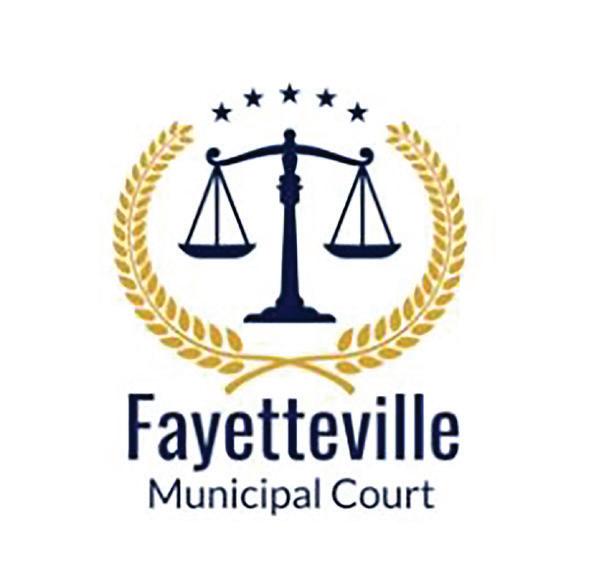
The Judicial Council of Georgia has recognized the City of Fayetteville Municipal Court with its Clearance Rate Excellence Award for Calendar Year 2022, an honor reserved for the top 10 percent of courts in the state.
The Clearance Rate Excellence Award recognizes these courts for demonstrating exceptional performance in maintaining clearance rates, a key indicator of a court’s ability to effectively manage its caseload. Clearance rates are calculated by dividing the number of disposed cases by the number of filed cases


and expressing the result as a percentage. Cases not disposed of in a timely manner contribute to a backlog of cases awaiting disposition. A clearance rate of 100 percent or higher demonstrates a court’s ability to resolve at least as many cases as were filed each year.
“This achievement reflects your court’s dedication, efficiency, and commitment to ensuring the timely resolution of cases,” stated the official Judicial Council of Georgia award letter. “Thank you for your participation in the annual
caseload reporting project and your court’s continued efforts to improve the administration of justice in all Georgia Courts through collaboration, innovation, and information.”
“Court Clerk Whitney Houston and her team have worked hard to bring about great improvements in our Municipal Court,” said City Manager Ray Gibson. “We appreciate their pursuit of excellence in all areas of court management. It reflects well on the City of Fayetteville.”

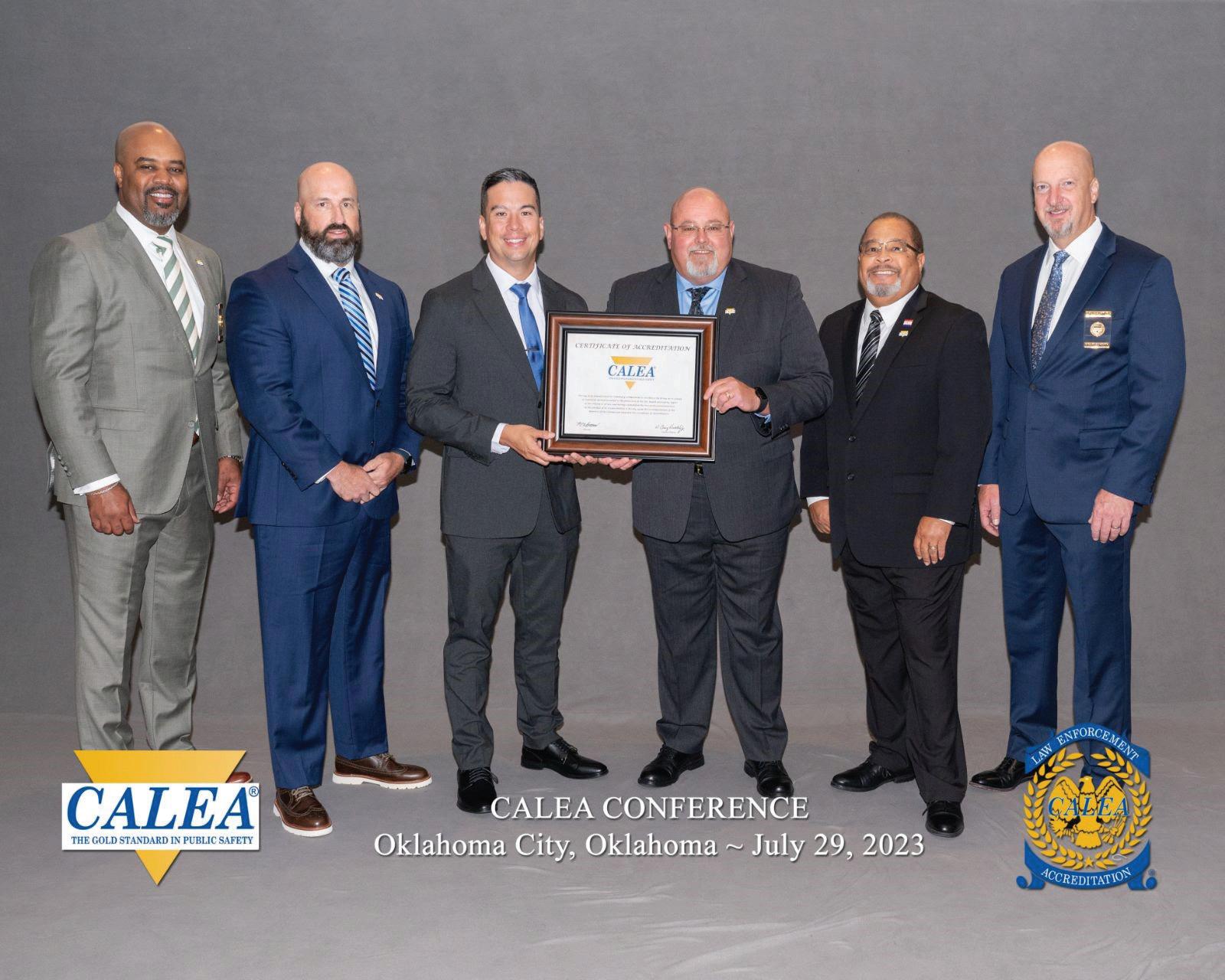
The Fayetteville Police Department in Georgia was awarded national accreditation on Saturday, July 29, by the Commission on Accreditation for Law Enforcement Agencies, Inc. (CALEAÒ) in the Law Enforcement Accreditation program(s).
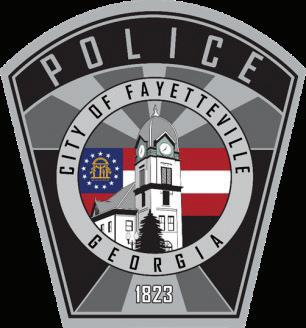
Following a multi-year selfassessment phase and a meticulous site-based assessment of community engagement, policy, procedures, equipment and facilities by CALEA assessors, Police Chief Scott Gray and Accreditation Officer David Cagle along with Mayor Ed Johnson and City Manager Ray Gibson attended the CALEA conference in Oklahoma City, Oklahoma. Each agency being reviewed goes before CALEA’s 21-member Board of Commissioners where the commission reviews all findings and determines the agencies’ accreditation status.
The evening of the hearing,
during the celebration banquet, CALEA President Marcus Brown and Executive Director Craig Hartley awarded the Fayetteville Police Department with accreditation, signifying excellence in public safety and commitment to community. This is Fayetteville’s first award of national accreditation. The Fayetteville Police Department now moves into CALEA’s four-year Accreditation cycle that includes four annual
remote, web-based file reviews and a site-based assessment in the fourth year.
“I am proud of the hard work both our internal staff and external stakeholders accomplished to help us get to this point,” said Chief Gray. “It truly takes an entire group to make us one of the best departments in Georgia. We can say that because we are 1 of only 30 municipal law enforcement continues on page 18
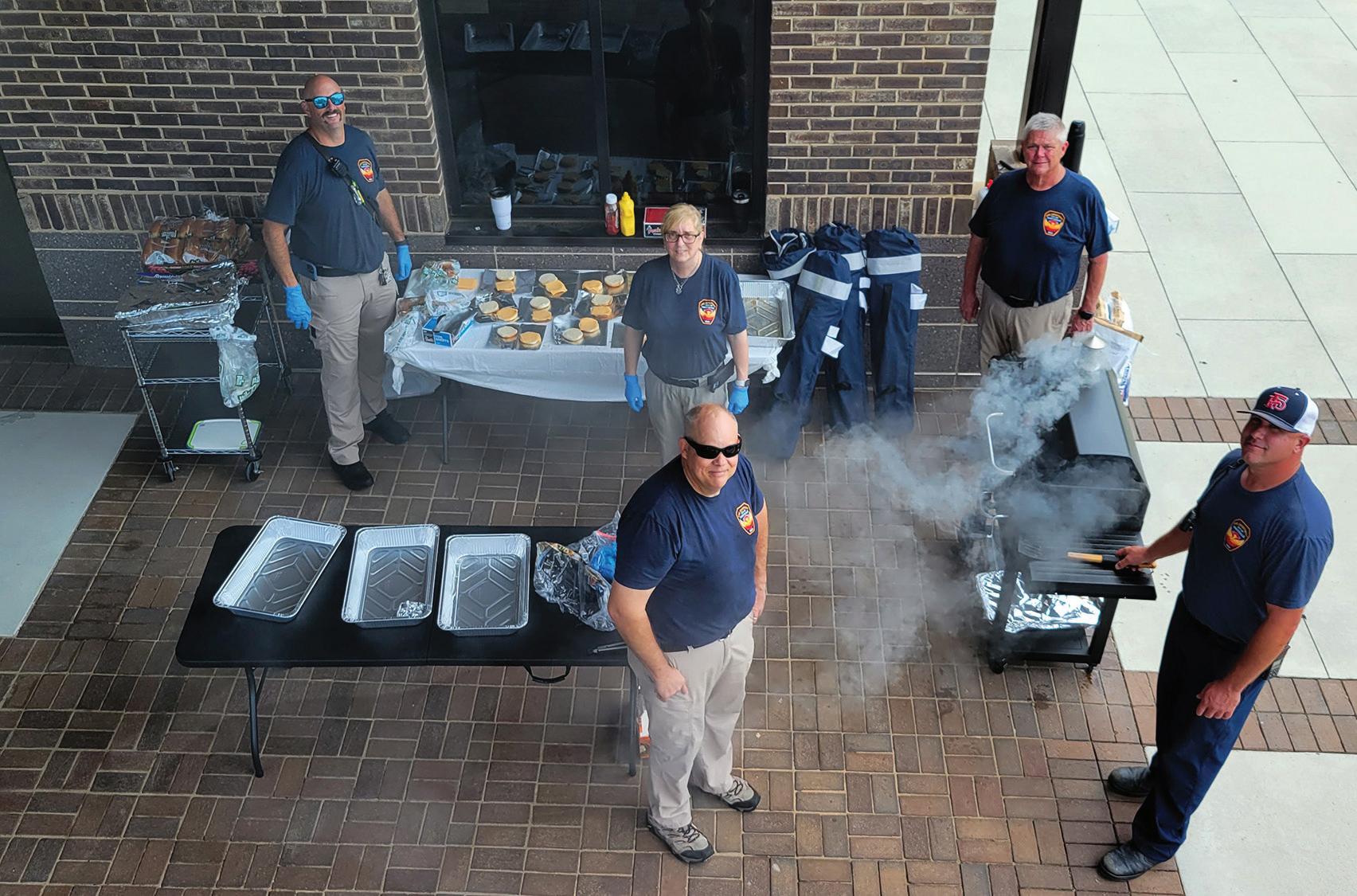






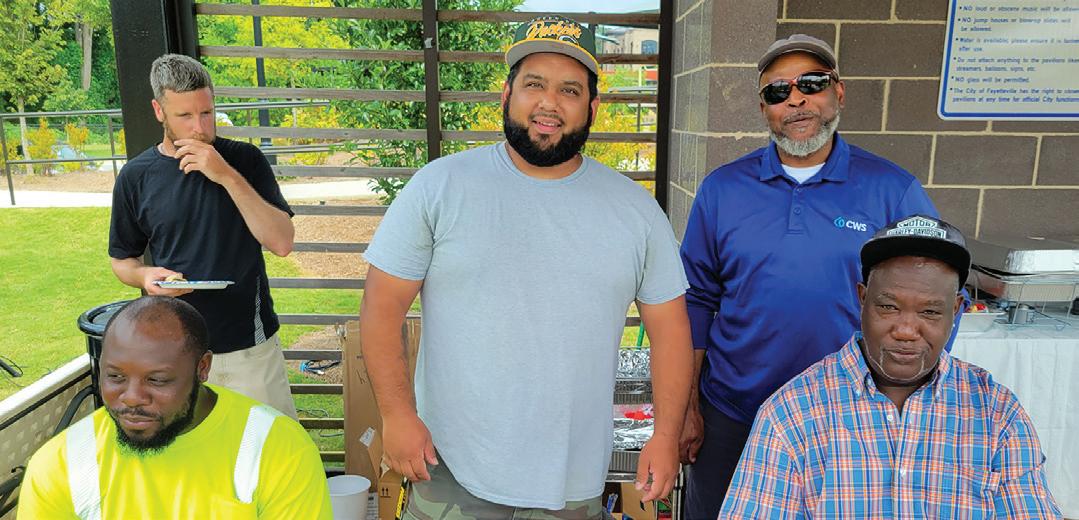

Established by the State of Georgia on March 28, 1823, Fayetteville is now officially 200 years old. Back in 1823, there was no “Atlanta” yet. That crossroads 20 miles north of Fayetteville would become known as Terminus in 1837 and Marthasville in 1843 before it was named Atlanta in 1847.



When Fayetteville was founded, the United States of America was only 47 years old, and Fayette County, Georgia was only two years old. By the mid-1800s, Fayetteville is said to have had a population of around 100 people. According to the United States Census, Fayetteville now has more than 19,000 residents within the city limits alone, with tens of thousands more calling it their hometown.
More than just a crossroads, Fayetteville is now home to one of the largest regional retail centers in the state, one of the largest movie studio campuses in the nation, and what will become one of the largest data center campuses in the world. All the while, people in this community still enjoy a friendly, small-town atmosphere, a revitalized historic district, and a growing number of events and activities that appeal to residents and guests of every generation.
1752 Georgia becomes a royal colony.
1776 The United States of America is established.
1788 Georgia is the fourth state to ratify the U. S. Constitution.
1821 Land for Fayette County is ceded from Creek Indian Nation and named for French General Marquis De Lafayette.
1823 Fayetteville is founded on March 28.
1823 Martha Ann Sophronia Heflin Cook is the first baby born in Fayetteville.
1823 Fayetteville is laid out as the county seat in 60 x 120-foot lots, which are sold for $12 each to obtain money to run the county.
1825 Fayette County Courthouse is built, making it the oldest courthouse in Georgia.
1855 Fayetteville Academy is built.
1861-65 American Civil War
1864 McCook’s raid comes through Fayetteville during General Sherman’s campaign.
1871 Hugh Manson Dorsey is born in Fayetteville. He will serve as Georgia governor 1917 to 1921.
1885 1885 United Benevolent Aid Society is created on Church Street and spreads across the state.
1886 Fayetteville Advertiser is the community’s first newspaper, which will eventually become Fayette County News.
1887 Railroad tracks are laid through Fayetteville and eastern Fayette County.
1889 Captain W. P. Redwine is elected as Fayetteville’s first mayor.
1892 Tornado destroys several homes as well as the Fayetteville Academy, and it takes three lives: Will Travis, Sallie Kate Graham, and an unclaimed child.
1898 Bank of Fayetteville opens as the City’s first bank.
1900 The First telephone and gas lights installed in Fayetteville.
1900 Folk artist Nellie Mae Rowe is born in Fayetteville.
1902 Fayetteville Train Depot is built.
1906 Burks Hotel is built with 14 rooms. It will be razed in 1977.
1914-18 World War I
1918 The first High School sports team is established: boys’ basketball.
1921 Swarms of boll weevils devastate the regional cotton crop, forcing several thousands to leave to seek other work.
1926 First electrical lines are installed in Fayette County.
1926 A volunteer fire department is organized in Fayetteville.
1929-39 The Great Depression
1930s Fayetteville’s first movie theater is located on the second floor of Seawright’s, which will become Ballard Law Office.
1933 - 1947 Cecil H. Travis, born in 1913, plays shortstop and third base for the Washington Senators professional baseball team. He plays 1,328 Major League games and three All-Star games, his season-high batting average is .359, and his lifetime batting average is .313.
1937 & 1954 Fayette County High School burns twice.
1939 Railroad tracks are taken up in Fayetteville and eastern Fayette County.
1940-45 World War II
1944 George O. White, Fayette County’s mostdecorated military veteran, is awarded the Navy Cross and Silver Star Medals for his World War II service.
1945 Fayette County paves its first road, which will become Georgia Highway 54.
1948 Margaret Mitchell Library is built and becomes Fayetteville’s first permanent library.
Circa 1950 The first drive-in movie theater opens.
1955 All black schools in the county are consolidated to the Fayette County Training School on Booker Avenue.
1950-53 Korean War
1957 Fayetteville is made sister city to Pauillac, France. Varney Graves is Mayor of Fayetteville, and Andre Cazes is Mayor of Pauillac.
1964 President John F. Kennedy assassination
1955-75 Vietnam War
1960s Civil Rights Movement
1968 Martin Luther King, Jr. assassination
1968 Robert Kennedy assassination
1969 First person on the moon
1969 Public Schools are integrated.
1975 Fayette County Emergency Medical Ambulance Corps is formed and is all-volunteer for the first six years.
1982 The top floor of the Fayette County Courthouse is firebombed. It will be restored over the next nine months.
1988 Soccer star Kelley O’Hara is born. Graduating Starr’s Mill High School, she becomes an Olympic gold medalist and a two-time FIFA World Cup champion.
1989 Downtown Fayetteville joins Main Street America.
1995 Fayette Pavilion opens.
1996 The Olympic Torch Relay comes through Fayetteville on its way to the Centennial Olympic Games in Atlanta.
1996 Piedmont Fayette Hospital opens.
2001 September 11 terrorist attacks
2011 Edward Johnson becomes the first black City Council member. He becomes the City’s first black mayor in 2015.
2014 Pinewood Studios is formed on what will become the 935-acre Trilith Studios campus.
2016 Pinewood Forest (to become Town at Trilith) is established.
2020 COVID-19 worldwide pandemic
2020 Schools go to virtual learning for a time, and most of the nation and world shut down. Georgia becomes the first state to reopen.
2021 The new Fayetteville City Hall and City Center Park open.
2023 City of Fayetteville holds Bicentennial Celebration at the Historic Courthouse and City Center Park.
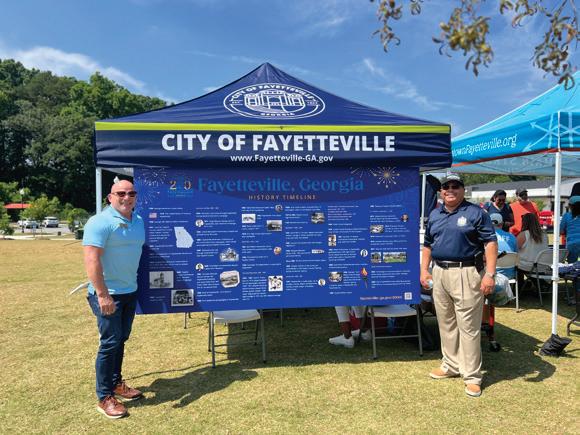






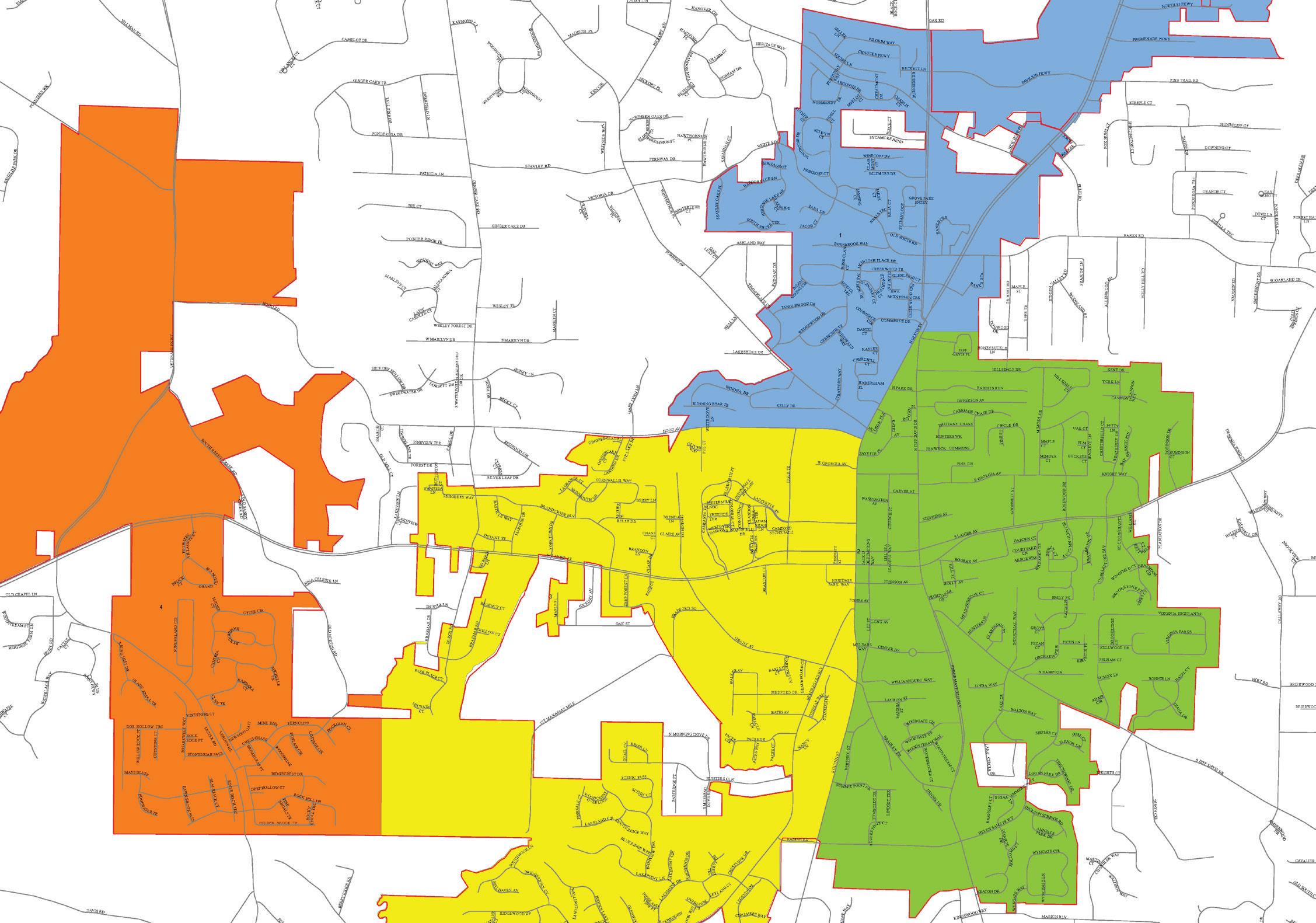
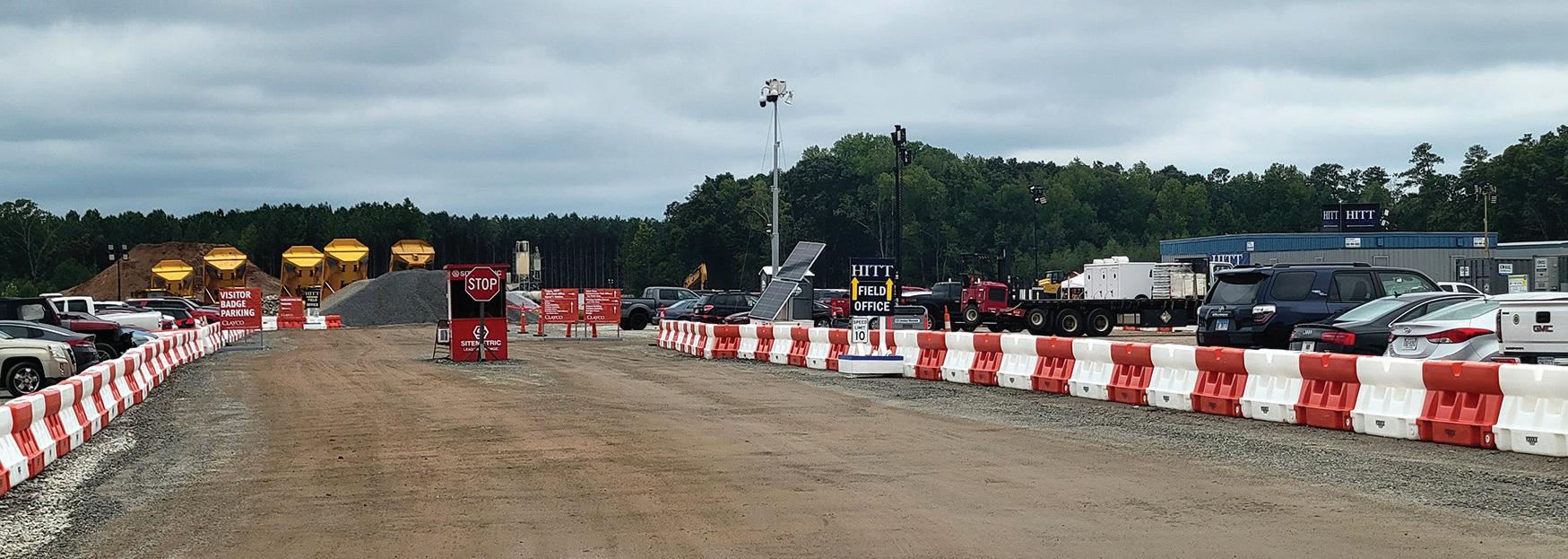

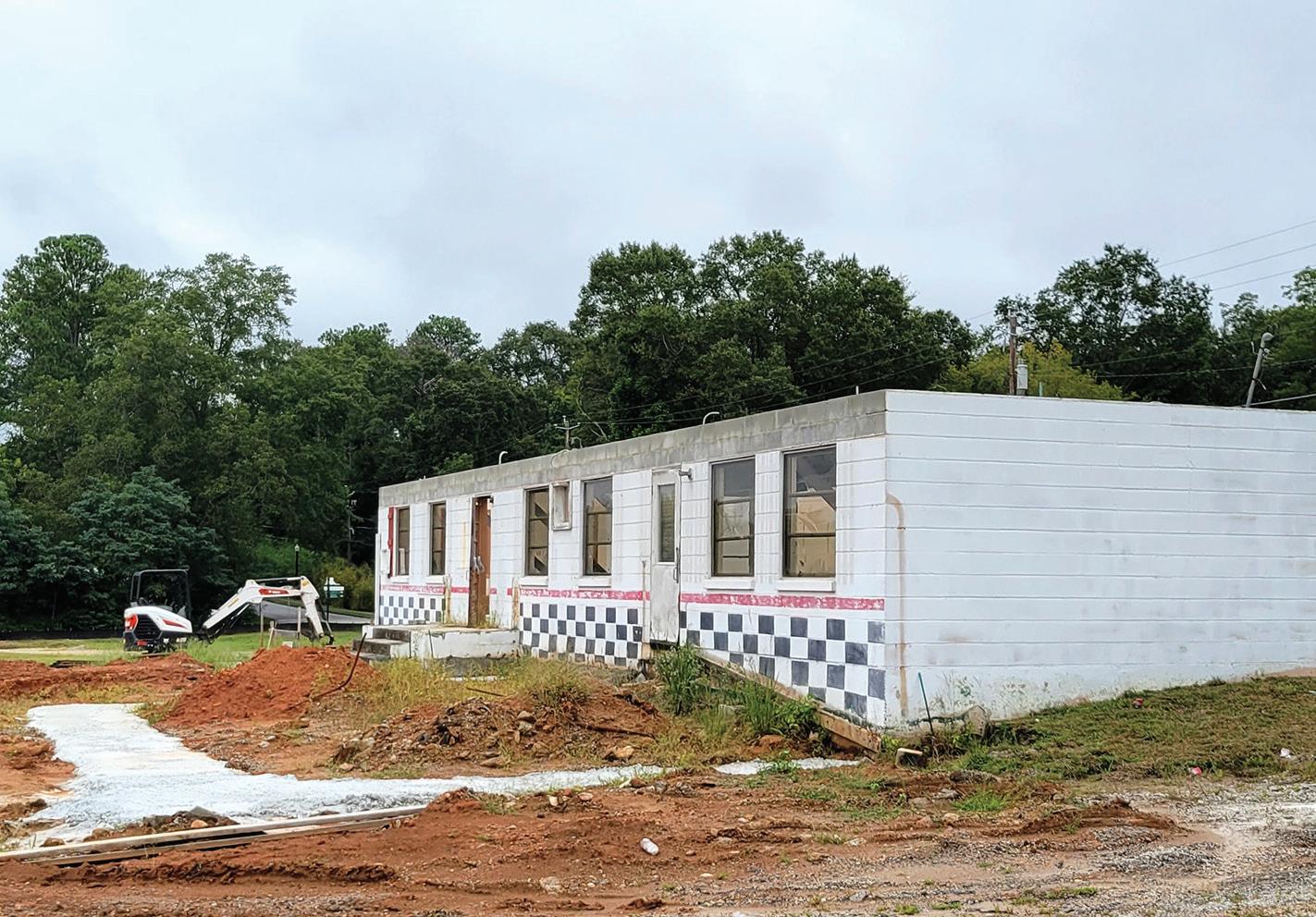
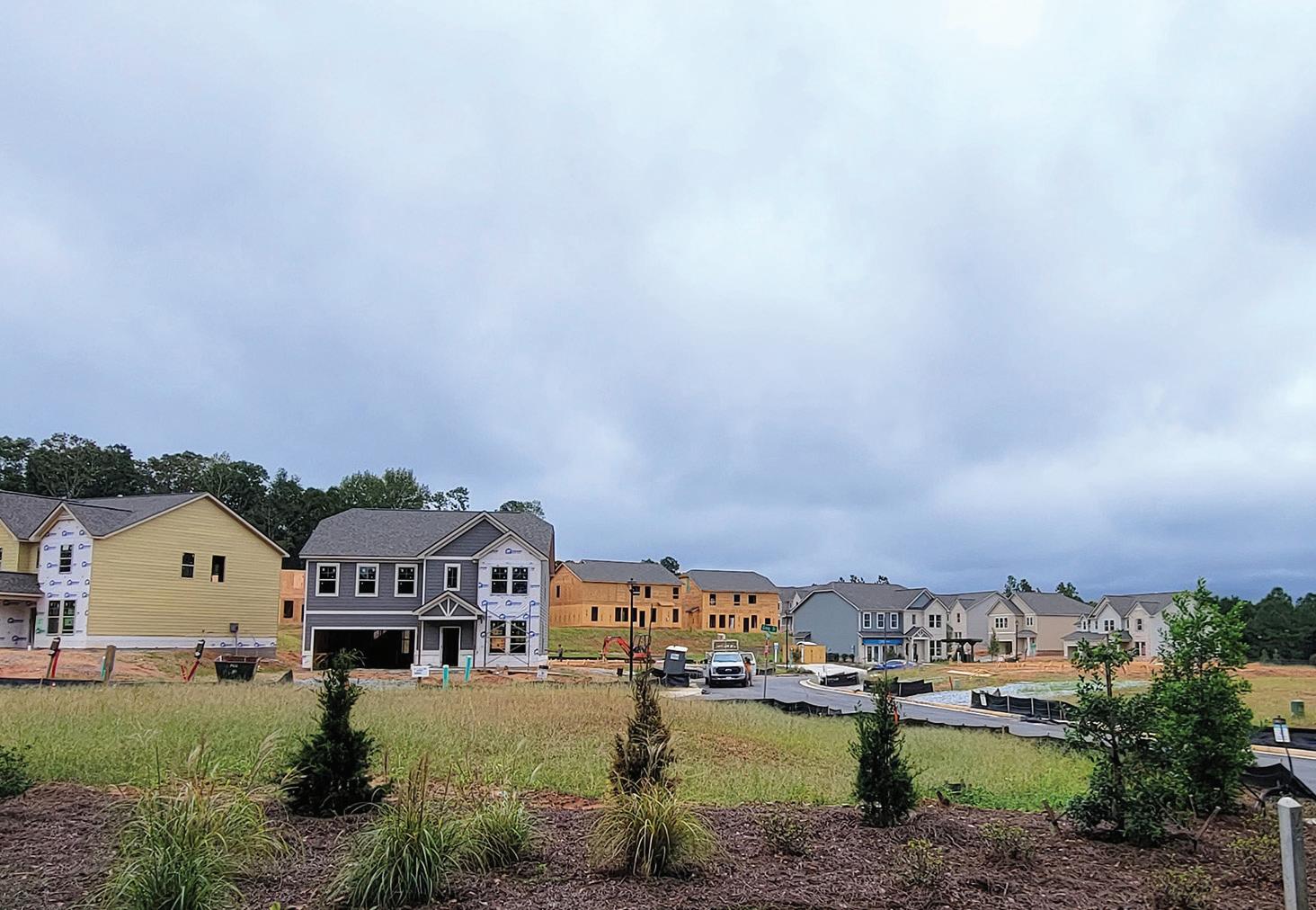

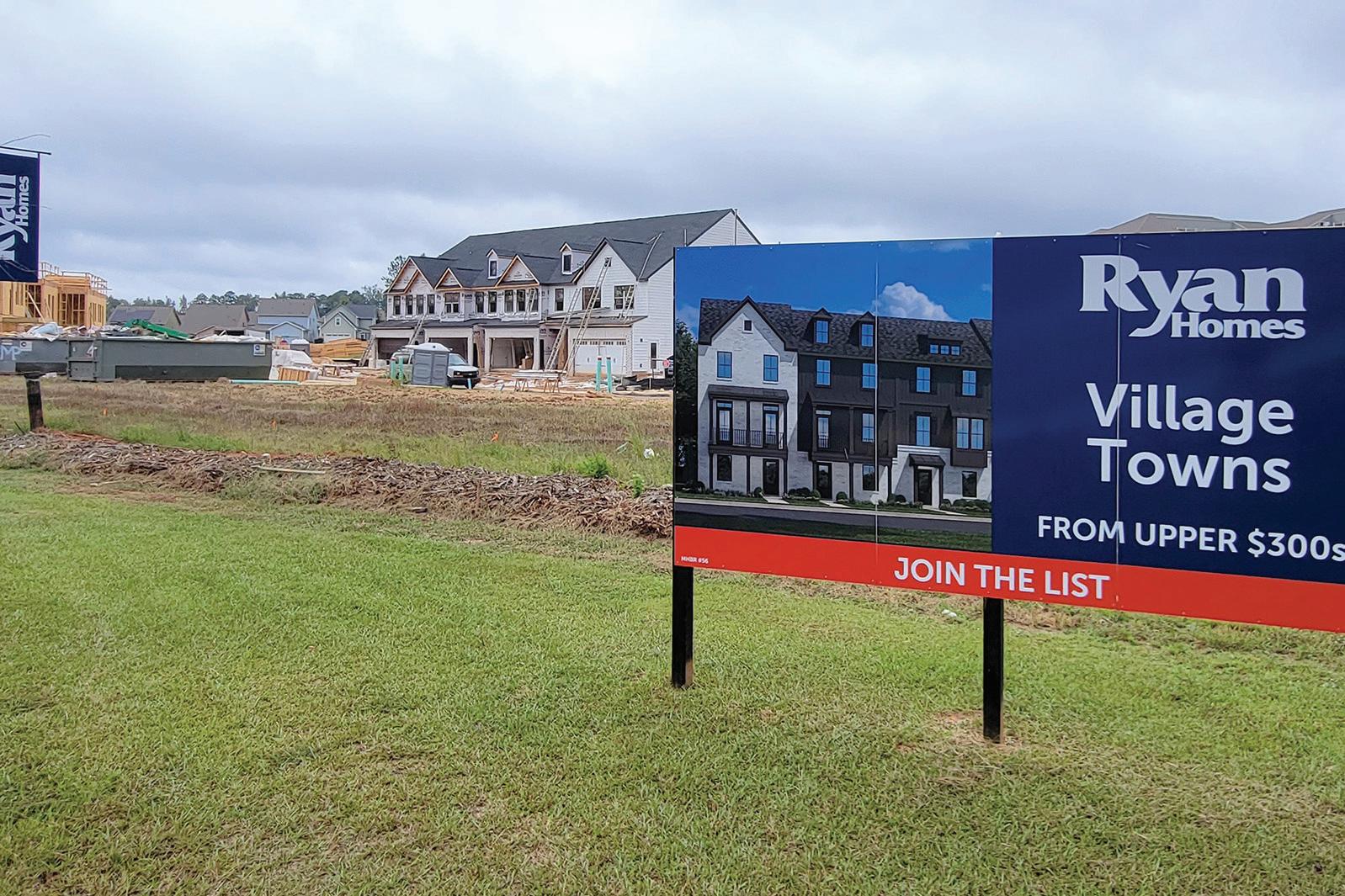
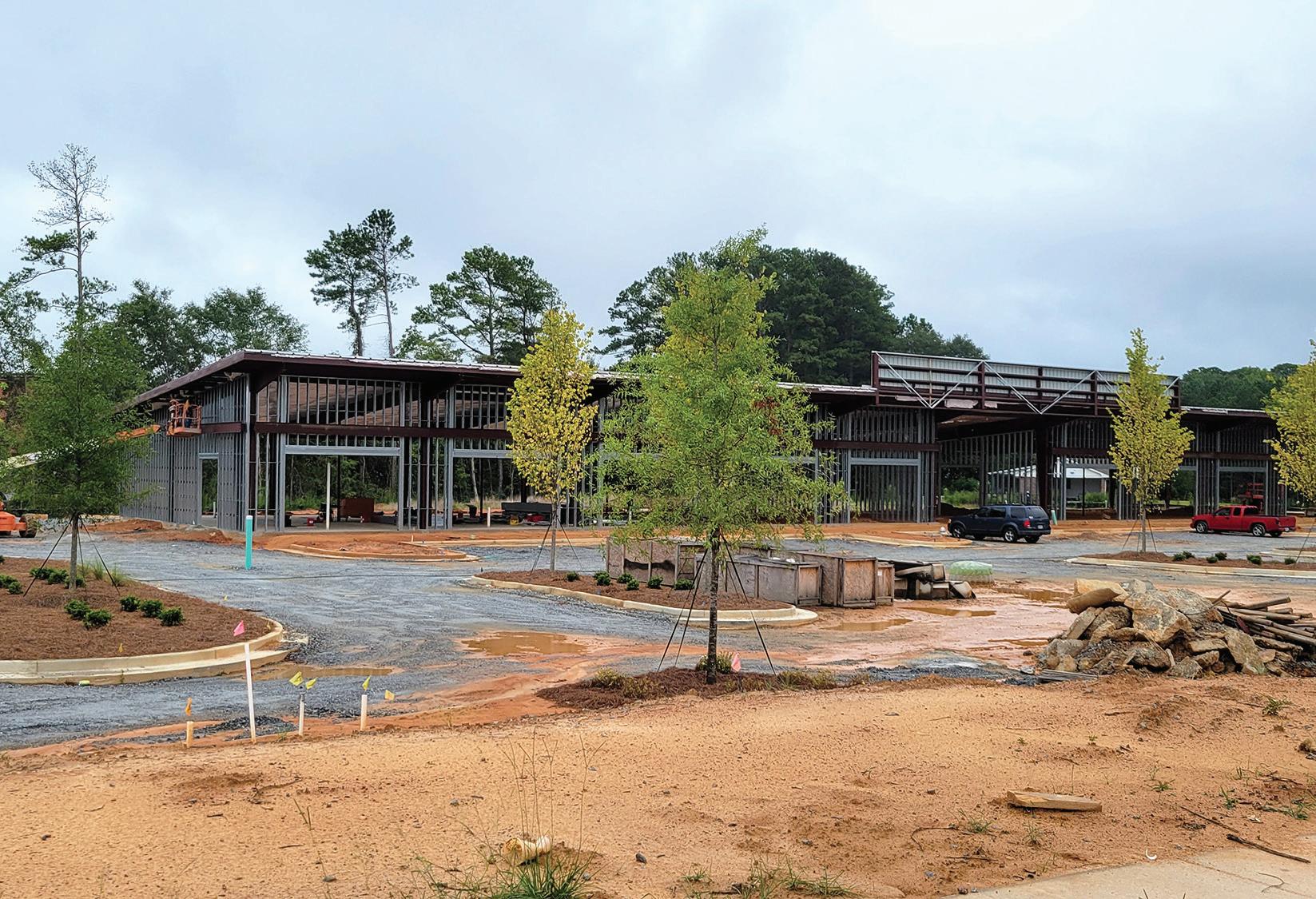
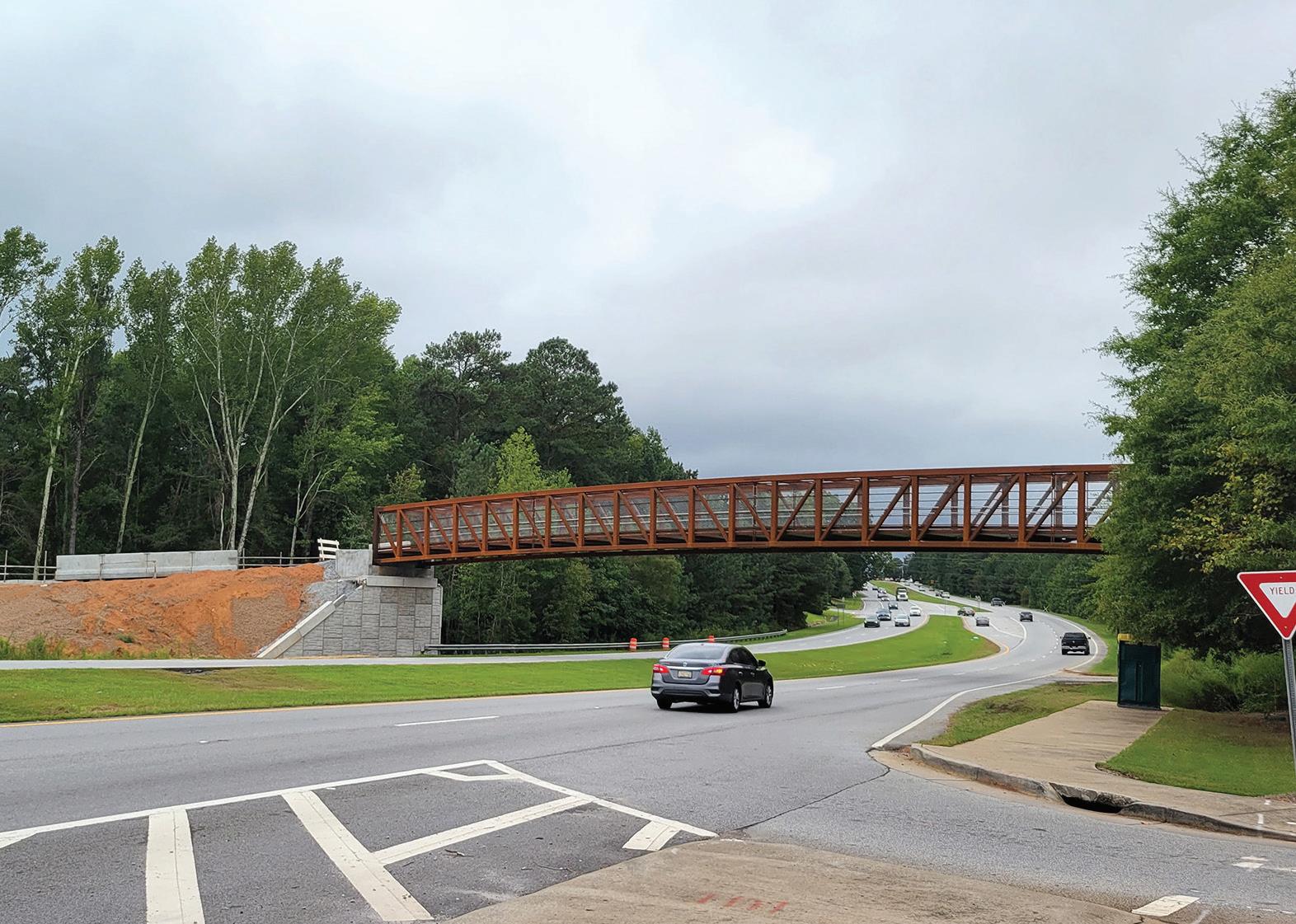

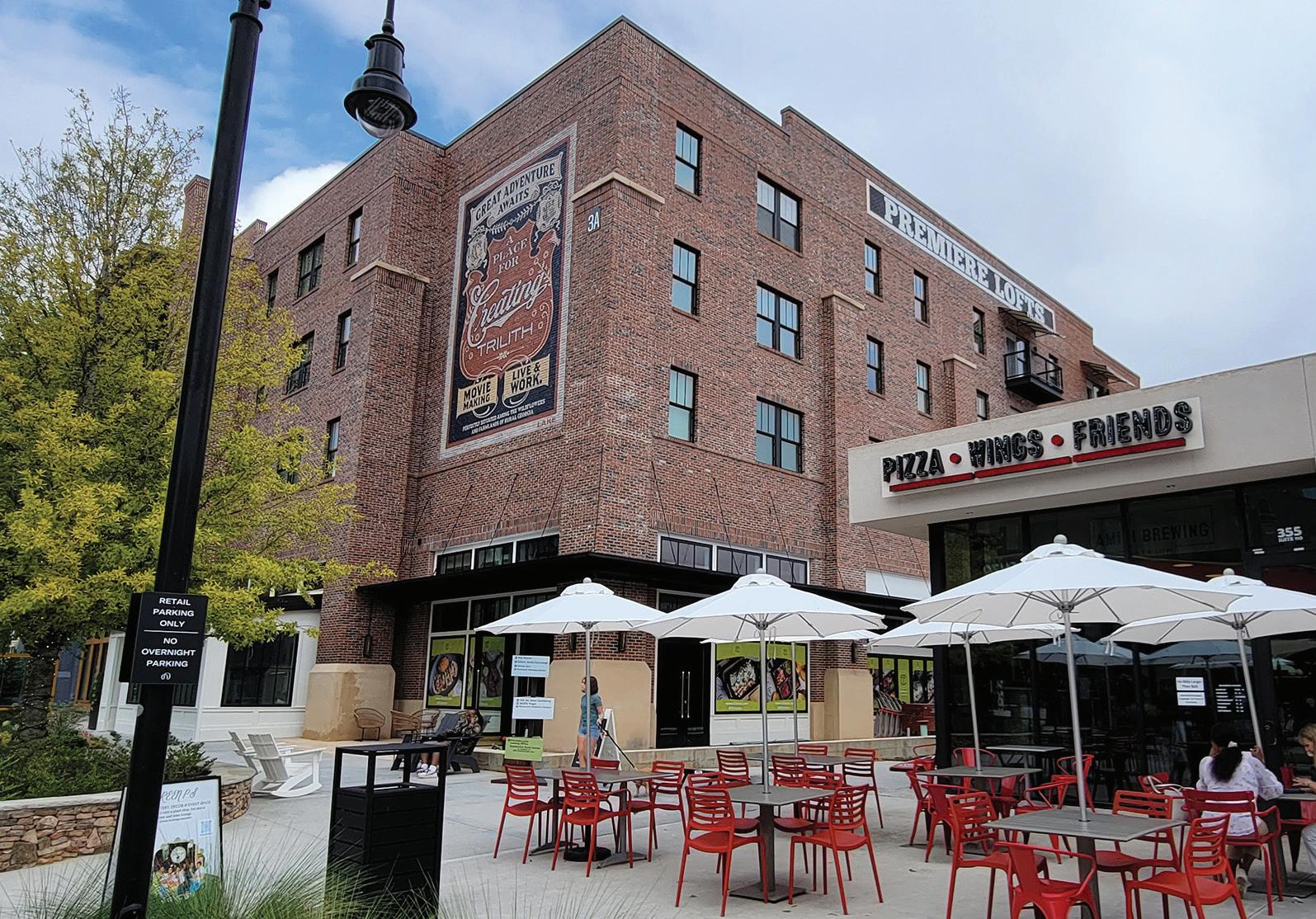
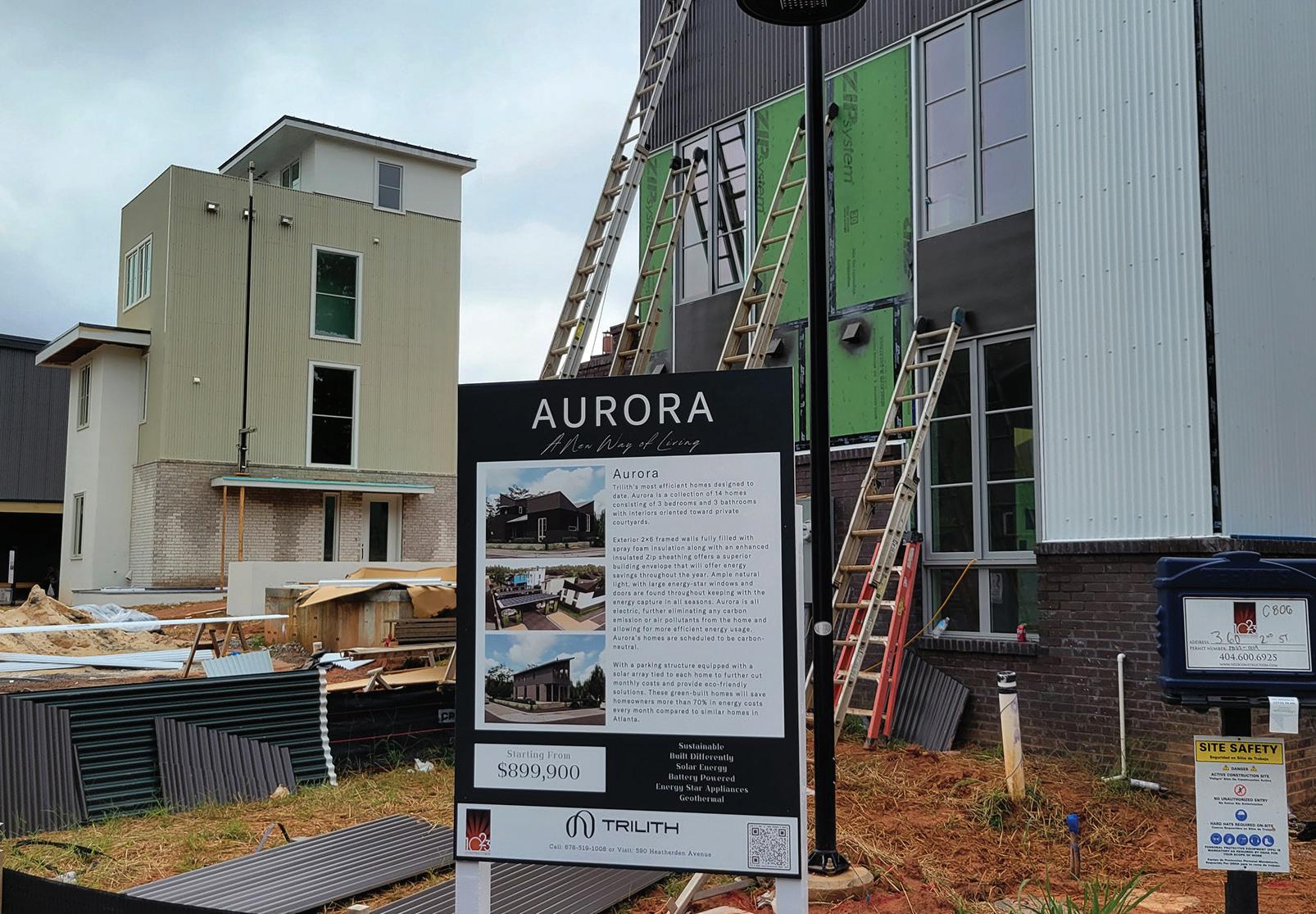
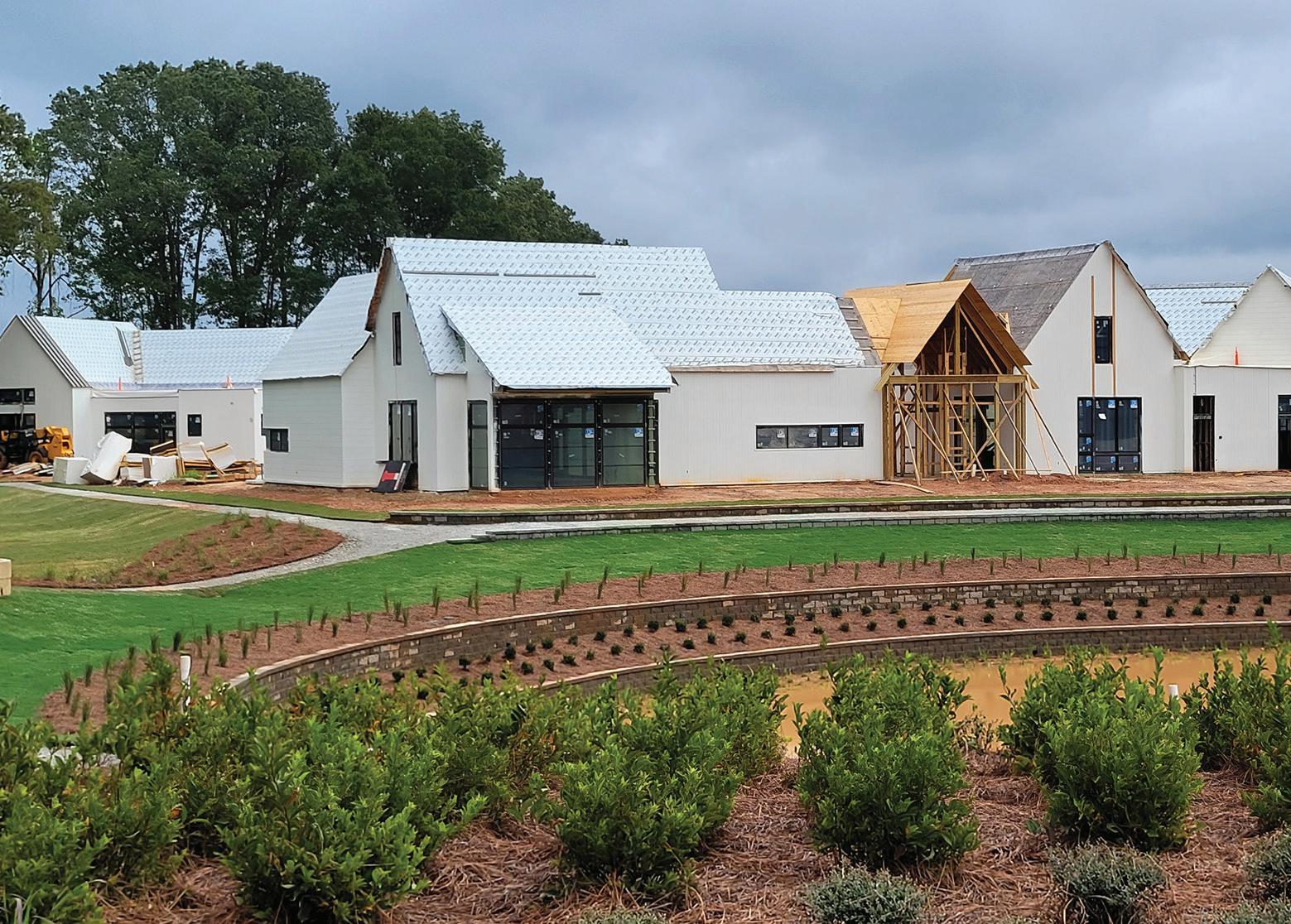


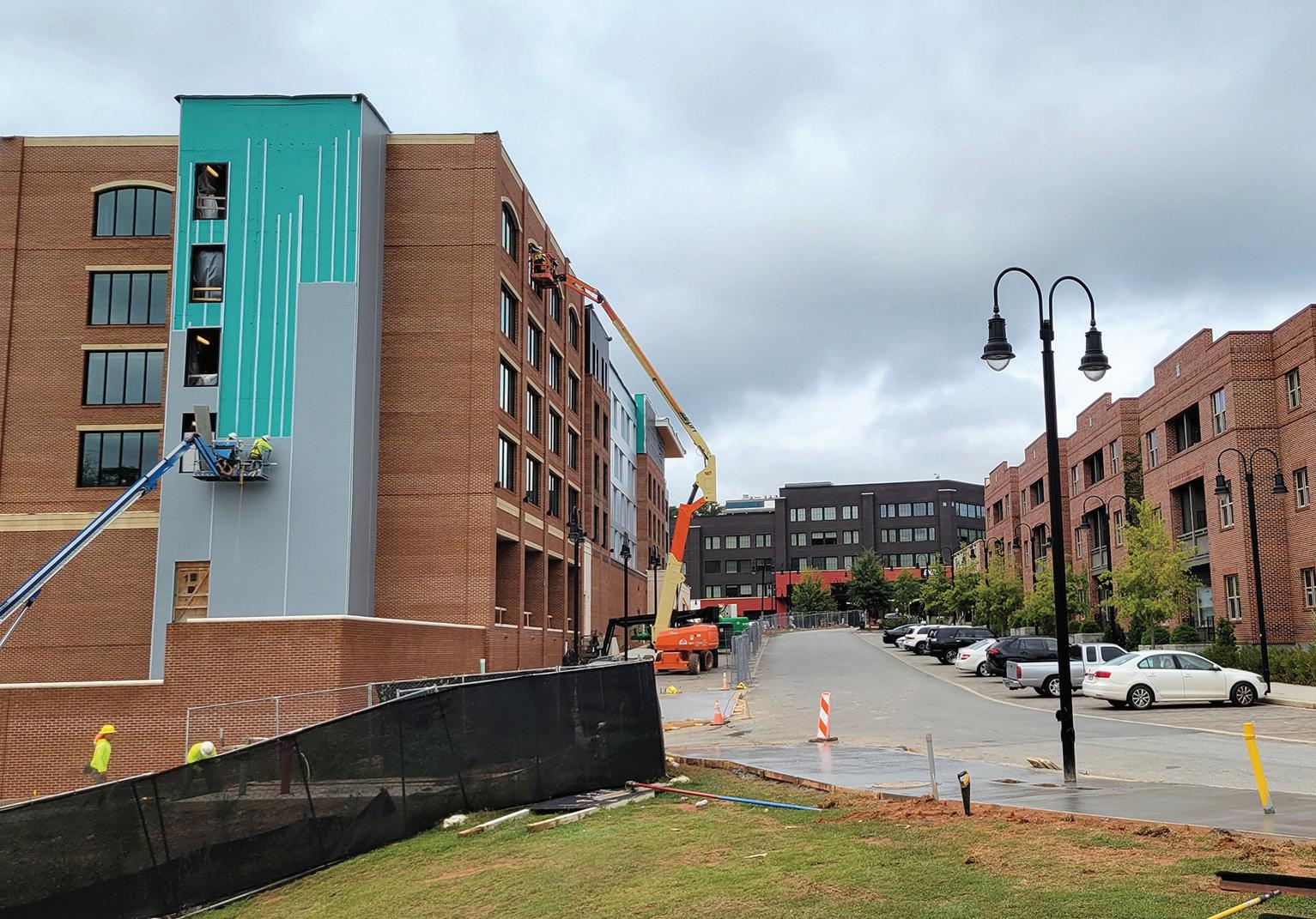
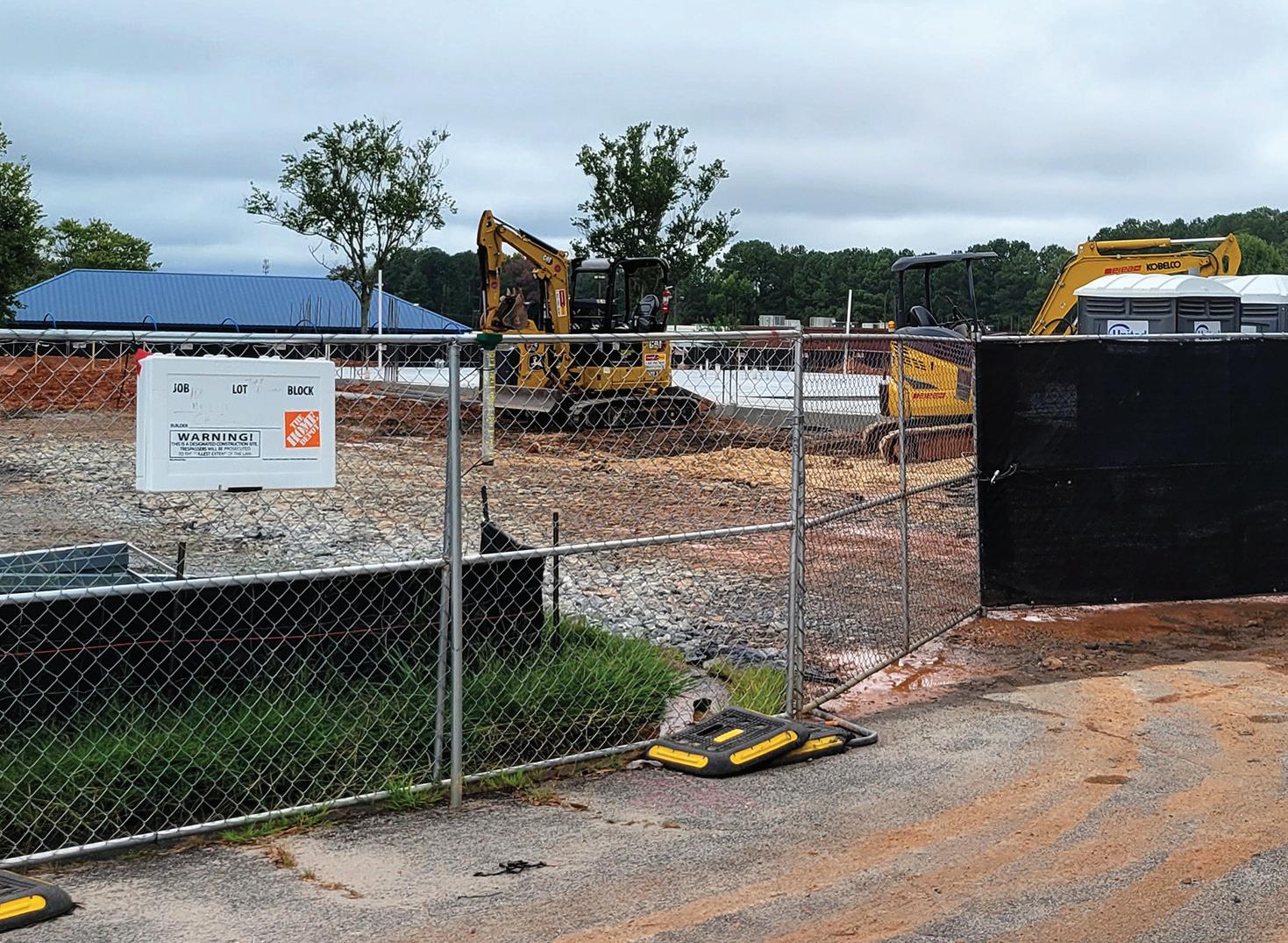
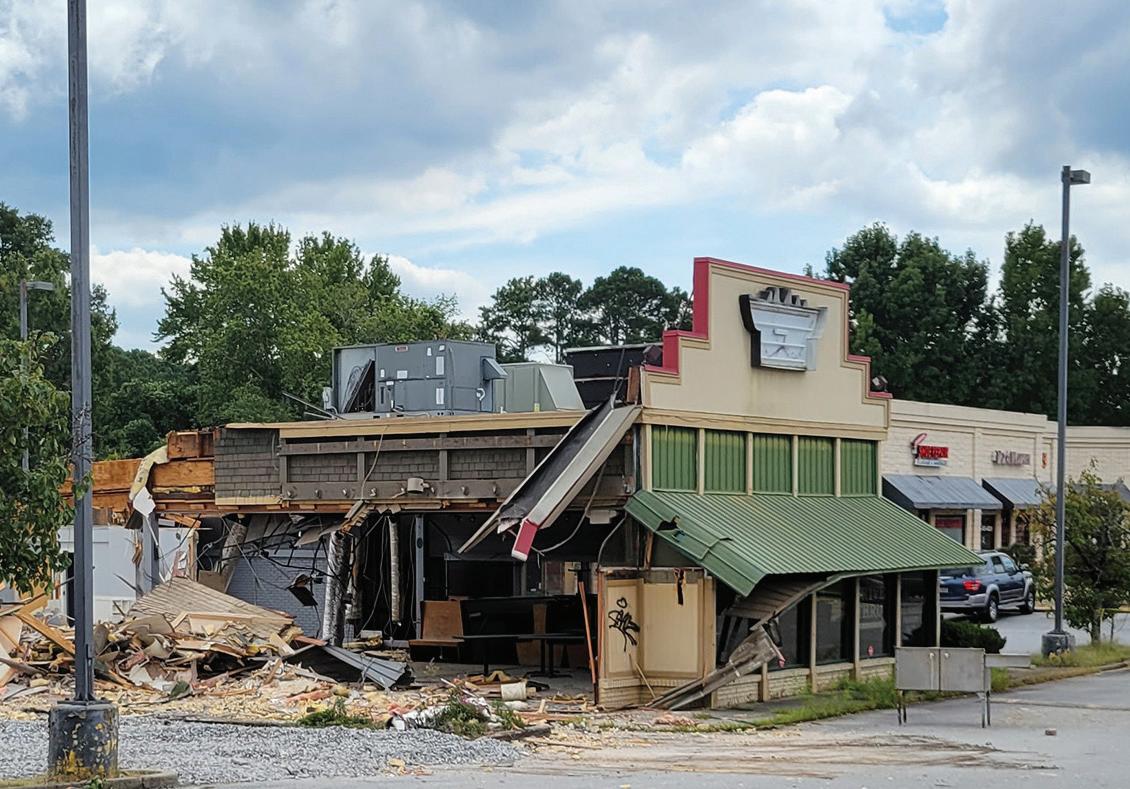 12. THE PORTAL GUESTHOUSE This boutique hotel located in the Town at Trilith neighborhood will open in January 2024.
14. SONIC: Demolition began September 19 on the site of the former Hotlanta Wings, which will become a new Sonic restaurant.
13. TIRE DISCOUNTERS The former T & G Allsports location on Highway 314 at Highway 85 is being replaced with a Tire Discounters store.. 13 - Septemberh 2023
12. THE PORTAL GUESTHOUSE This boutique hotel located in the Town at Trilith neighborhood will open in January 2024.
14. SONIC: Demolition began September 19 on the site of the former Hotlanta Wings, which will become a new Sonic restaurant.
13. TIRE DISCOUNTERS The former T & G Allsports location on Highway 314 at Highway 85 is being replaced with a Tire Discounters store.. 13 - Septemberh 2023
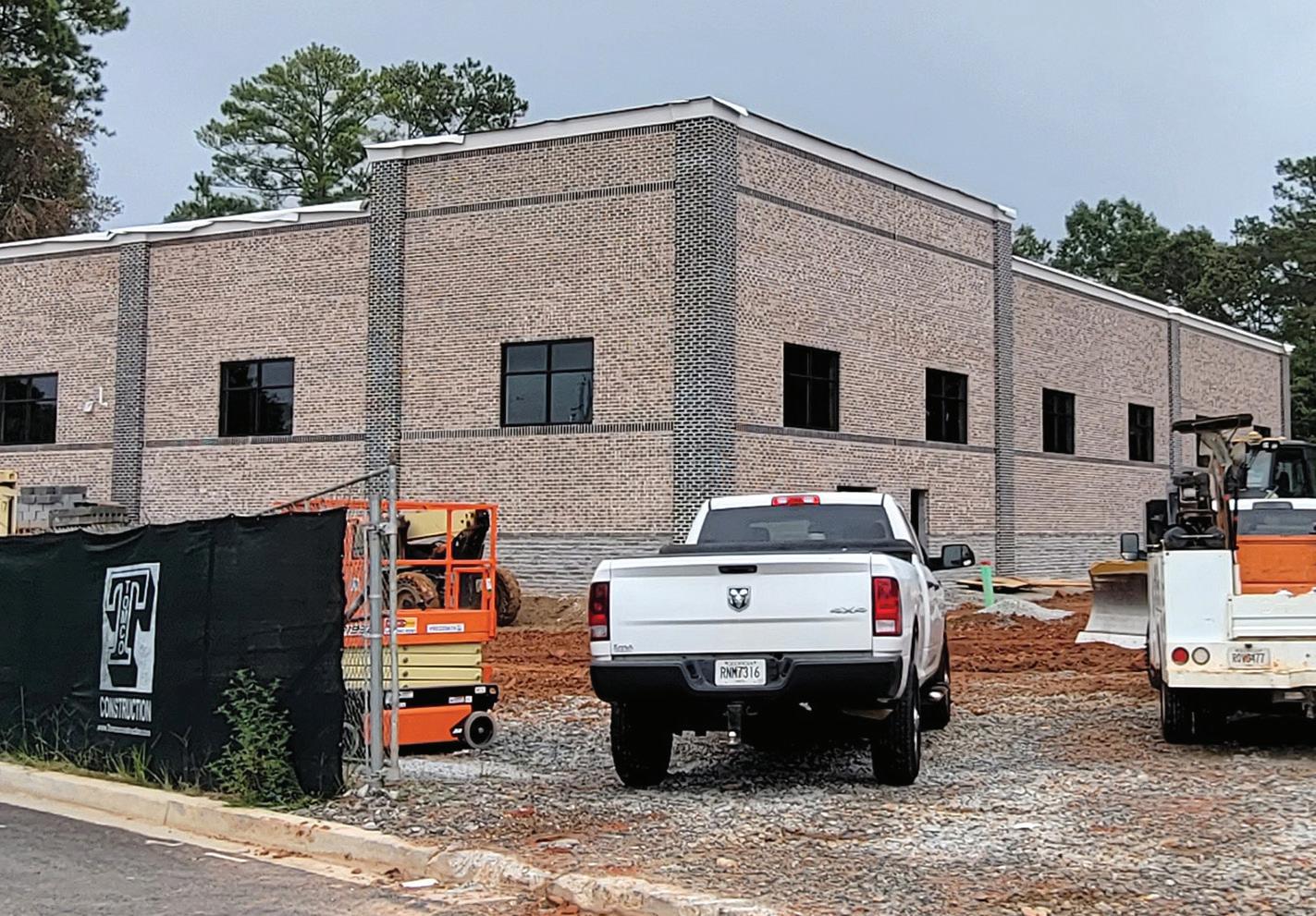


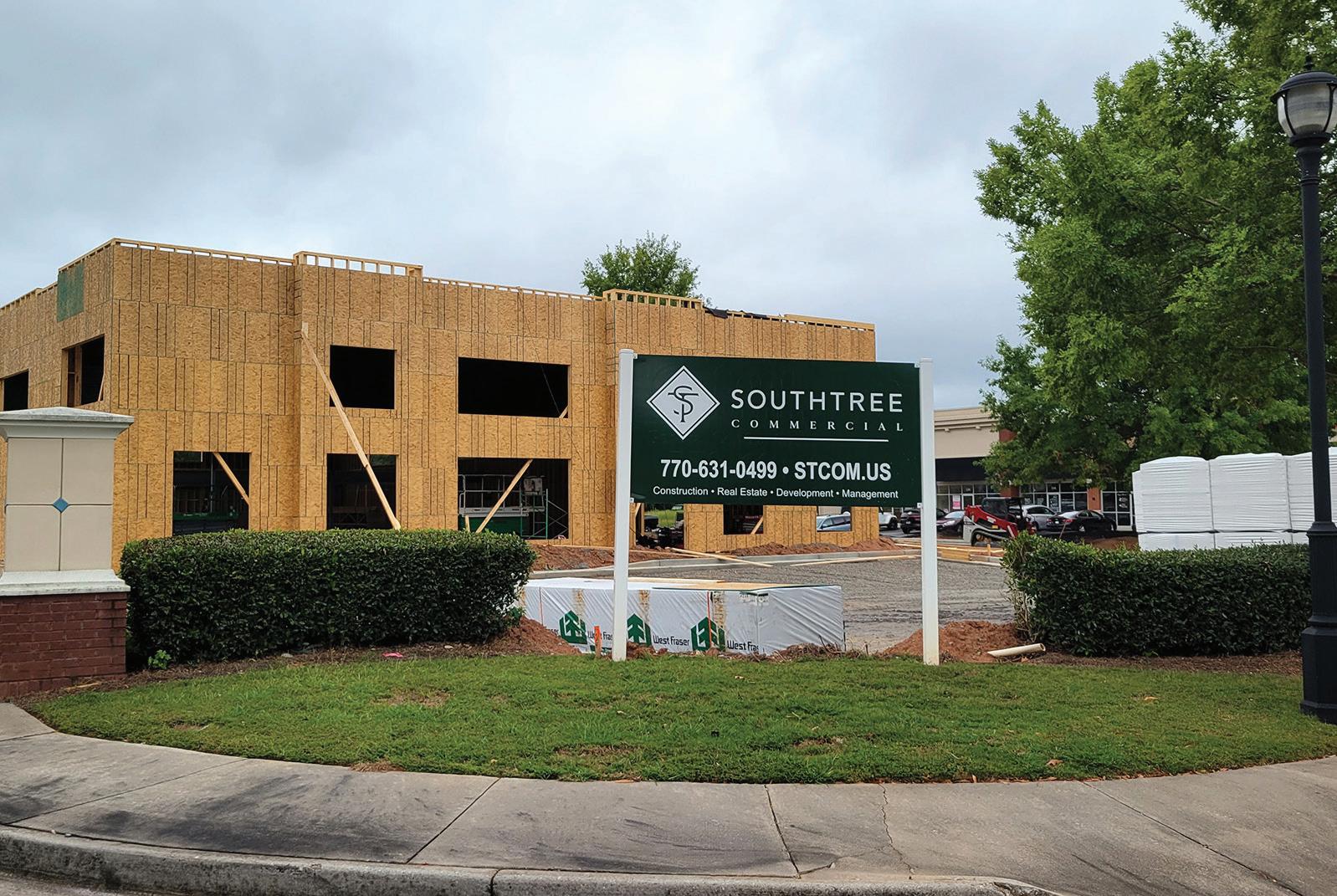
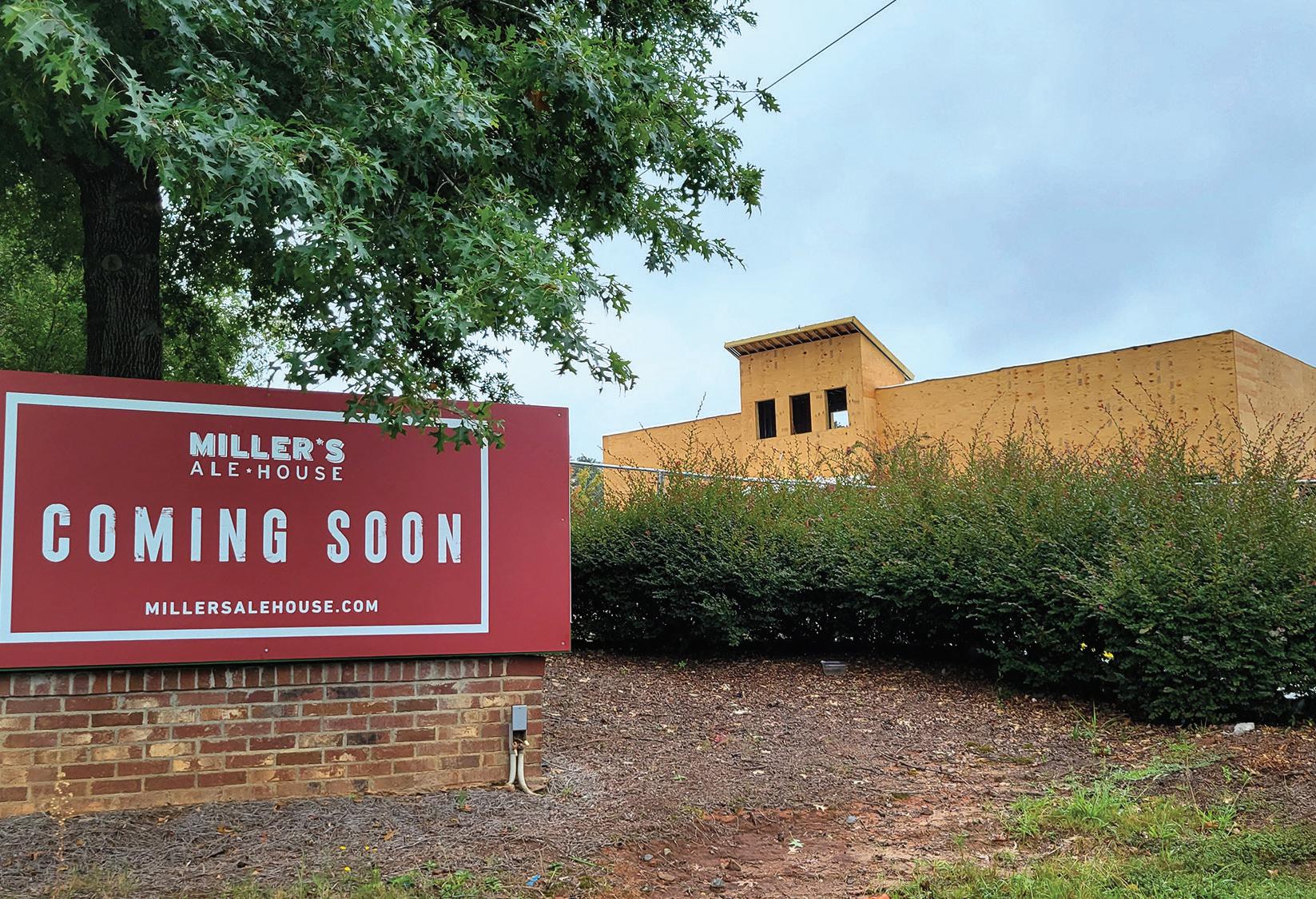


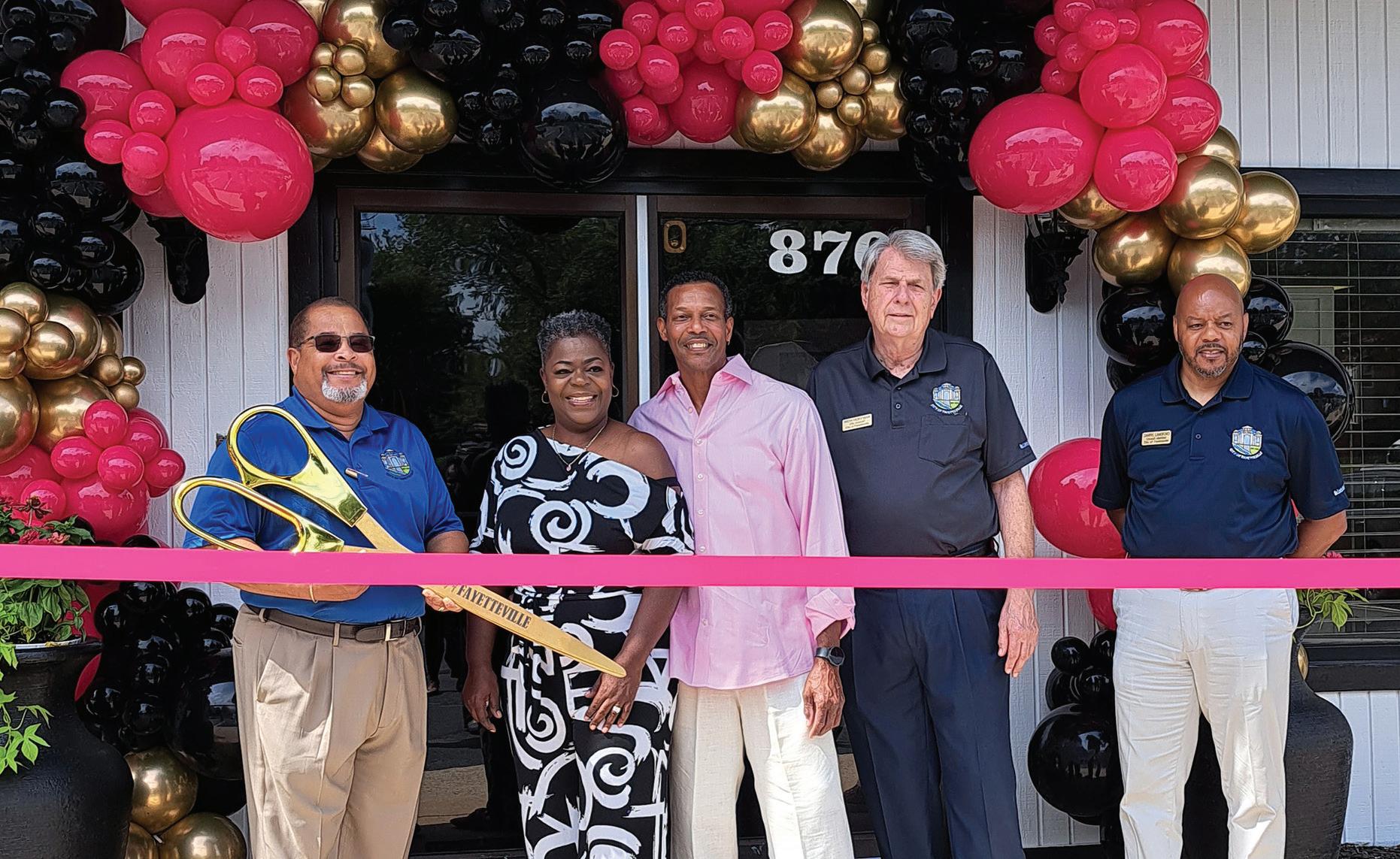

Multiple Departments Participated in this memorial event September 11

Eight years ago, four Fayetteville firefighters quietly climbed Stone Mountain in full turnout gear as a personal tribute to their counterparts who risked their lives and died on September 11, 2001. Each year since, they have been joined by more climbers. Here, they are pictured with personnel from the Fayetteville Fire Department, Fayetteville Police Department, Fayette County Sheriff’s Office, and the Fayette County Department of Fire and Emergency Services. Other agencies from around the state also participated this year’s climb.
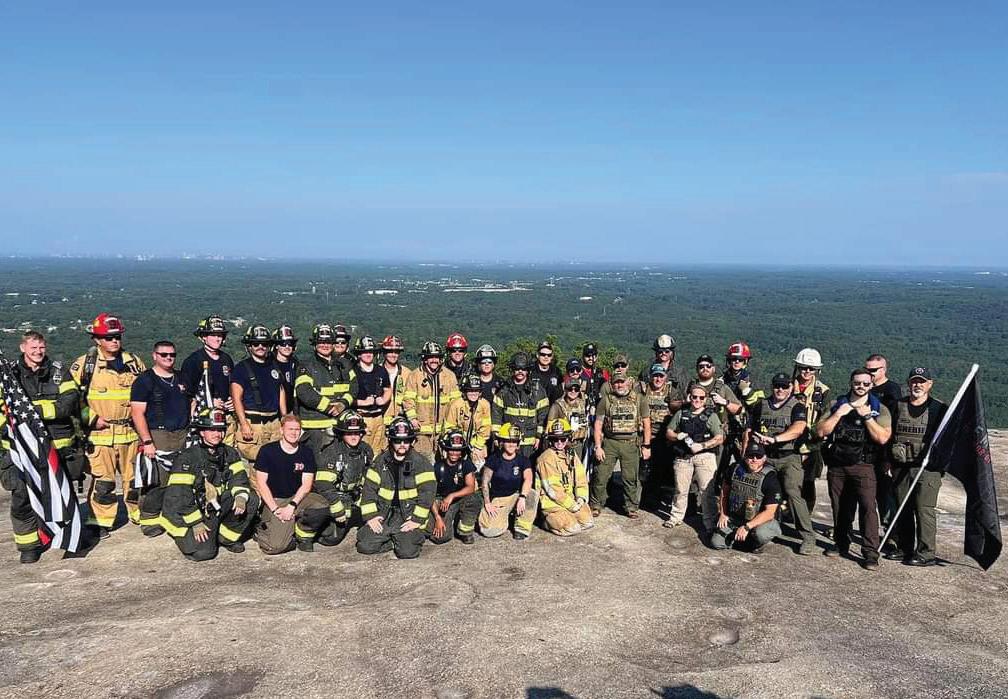
continued fron page 4 Police
only 30 municipal law enforcement organizations in the state to obtain the ‘gold’ standard of excellence in law enforcement.
“We all owe a huge thank you to Master Patrol Officer D. Cagle for his tireless effort to help us achieve this goal,” Chief Gray continued. “We are proud of our police department and the men and women who work hard everyday keeping Fayetteville a safe city.”
“We couldn’t be prouder of our Police Department for earning this National Law Enforcement Accreditation,” said City Manager Ray Gibson. “We were already pleased when their state certification was renewed last year, and then they chose to go to the next level by pursuing CALEA accredation.
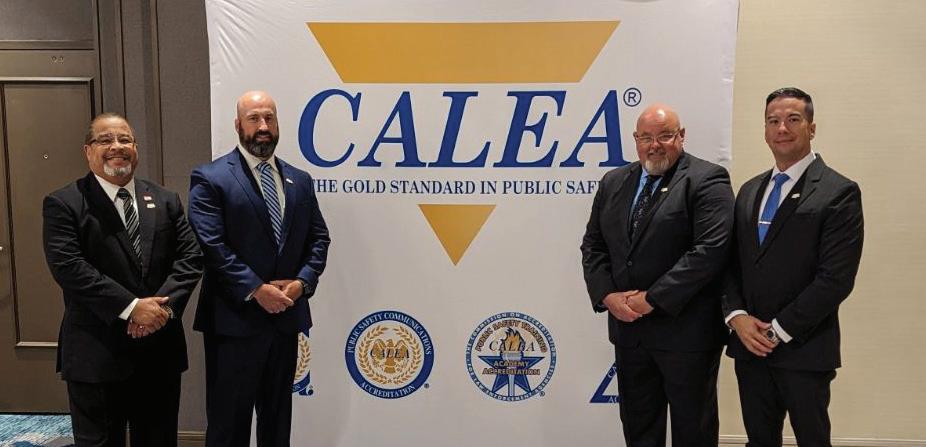
This is a great accomplishment, and it demonstrates a real commitment to excellent policing in our community.”
In 1979, the Commission was created through the combined efforts of four major law enforcement organizations; the International Association of Chiefs of Police, National Organization of Black Law Enforcement Executives, National Sheriffs’ Association and the Police Executive Research Forum.
The purpose of the Commission is to develop standards based on international best practices in public safety, and to establish and administer the accreditation process. The accreditation process is how a public safety agency voluntarily demonstrates how it meets
professionally recognized criteria for excellence in management and service delivery.
“This award of accreditation does not come easy,” said CALEA President Marcus Brown. “Agencies must go through a rigorous review and evaluation of their organization and then implement the necessary policy and procedure changes. The process does not stop at that point. By voluntarily choosing to seek CALEA accreditation, the agency commits to an ongoing review of adherence to CALEA’s standards. Each community with CALEA accredited agencies should be feel confident that their public safety organization is going above and beyond and operating under the highest standards in public safety.”
FOR MORE INFORMATION, CALL 770.461.4441 OR SCAN THE QR CODE HERE. WWW.FAYETTEVILLE-GA.GOV/POLICE
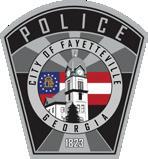

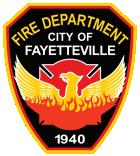
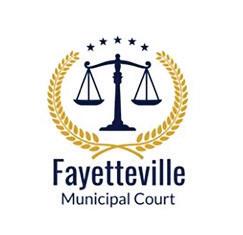

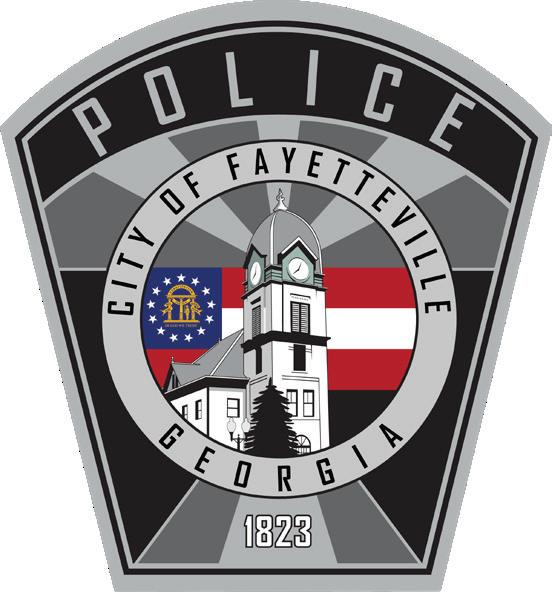
DEPARTMENT
• Health, Dental, Life, and Vision Insurance

• Vacation, Holiday and Sick Leave
• Defined Benefit (City Pension) and Deferred Compensation (401k, 457b)
• Take Home Vehicle (30 miles)
• $600 Annual Clothing Allowance
• Paid Training & Ample Part-Time Jobs Available
SPECIALIZED
Criminal Investigations Division (C.I.D.)
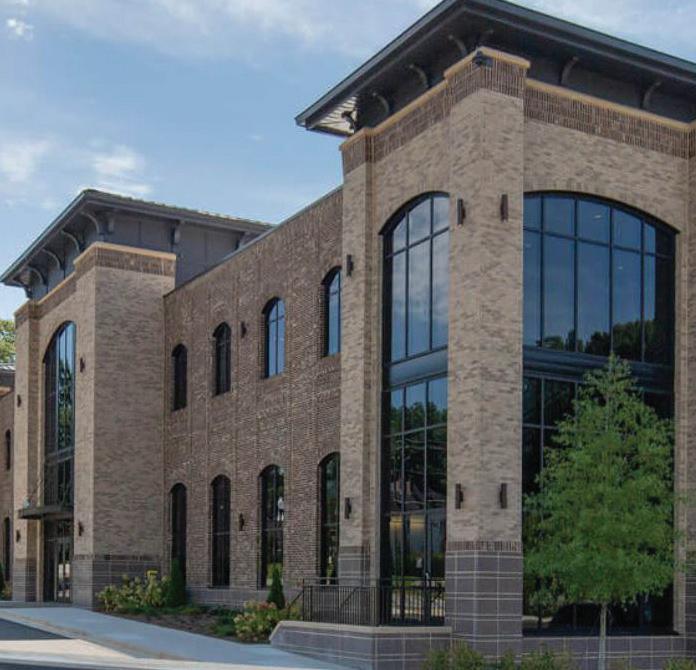
School Resource Officer (S.R.O)
Tactical Response Team (T.R.T.)
Community Policing (C.A.R.E.)
Traffic Enforcement Accident Reconstruction (T.E.A.R.)
Task Force Officer (T.F.O.)
Street Crime Unit (S.C.U.)
K-9 (Canine Unit)
SEPTEMBER
OCTOBER

4
NOVEMBER






For the latest news, notices, and events visit: www.fayetteville-ga.gov

